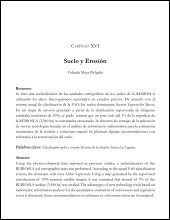High antipredatory efficiency of insular lizards: A warning signal of excessive specimen collection?
Abstract
"We live-captured lizards on islands in the Gulf of California and the Baja California peninsula mainland, and compared their ability to escape predation. Contrary to expectations, endemic lizard species from uninhabited islands fled from humans earlier and more efficiently than those from peninsular mainland areas. In fact, 58.2% (n = 146) of the lizards we tried to capture on the various islands escaped successfully, while this percentage was only 14.4% (n = 160) on the peninsular mainland. Separate evidence (e.g., proportion of regenerated tails, low human population at the collection areas, etc.) challenges several potential explanations for the higher antipredatory efficiency of insular lizards (e.g., more predation pressure on islands, habituation to humans on the peninsula, etc.). Instead, we suggest that the ability of insular lizards to avoid predators may be related to harvesting by humans, perhaps due to the value of endemic species as rare taxonomic entities. If this hypothesis is correct, predation-related behavioral changes in rare species could provide early warning signals of their over-exploitation, thus encouraging the adoption of conservation measures."
Collections
Related items
Showing items related by title, author, creator and subject.
-
PROMOCIÓN DEL PERIFITON PARA EL CULTIVO DE CAMARÓN BLANCO: HACIA UNA ACUICULTURA ECOLÓGICA
DOMENICO VOLTOLINA LOBINA; JUAN MANUEL AUDELO NARANJO; MARIA DEL ROSARIO PACHECO MARGES -
Suelo y Erosión
YOLANDA LOURDES MAYA DELGADO


